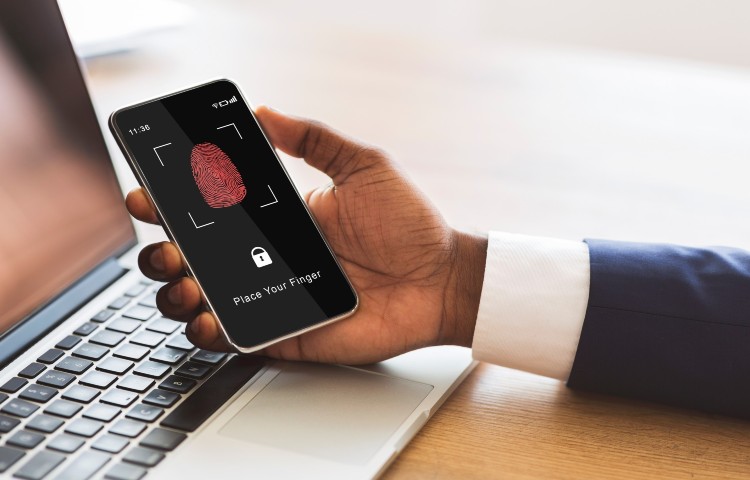

Prefer to listen instead? Here’s the podcast version of this article.
With the current work climate accelerating towards remote offices and customer services, cybersecurity and, to be more specific, behavioral biometrics, is quickly becoming a focal point for any potential or recent innovation.
In fact, a recent report from Grand View Research concluded that the market size for behavioral biometrics is expected to grow at a compound annual growth rate of 24.5% from 2020 to 2027. The pandemic has accelerated interest in an already growing space, but should you start to consider adding behavioral biometrics to your service or business?
Behavioral biometrics is a form of cybersecurity that relies on the behavior of the user rather than static information or physical characteristics. Traditional security or static information for applications or consumer websites would include a password, phone number, or social security number. Physical characteristics would include security functions like fingerprint or face ID.
More recently, dual-step authentication is also a form of static information. For example, this would be when you’re asked to enter a password and also a numerical code sent to another device, like your phone, to confirm you’re signing in.
And while most of these types of security are relatively new, they are also still vulnerable. You’ve probably heard or read countless stories of data breaches even within companies keeping user information protected behind two-step authentication or face ID.
Behavioral biometrics is powered by artificial intelligence (AI) and works in the background of a user session and tries to identify if the person using the device or application is actually the normal user of that device. As an example, this version of biometrics can identify a user by the way the device is being held, the way a user normally types, or the way they navigate with the app’s interface. Behavioral biometrics can detect abnormalities between user interaction and automated/fraudster attacks.
In the past few years, the financial sector has seen the greatest investment in behavioral biometrics followed by insurance and eCommerce.
A top bank in the UK, for example, utilizes behavioral biometrics through industry leader Biocatch for its online banking app. Behavioral biometrics was able to alert the business in real-time of attempted fraud of almost 1.6 million pounds. The bank also utilized anti-malware and device recognition, but behavioral biometrics was the only security technology to alert the company of this attack.
Mastercard ran a report earlier in 2020 and revealed 7 out of 10 consumers believe the shift to digital payments is permanent. With this train of thought from the public, the growing need for investing in security measures to build trust with users is even more important now. Mastercard also began issuing contactless biometric bank cards back in 2019 and started trials for both debit and credit cards.
One of the more frustrating aspects of the common e-commerce website or mobile app is having to reset passwords or go through two-step authentication. These potential pitfalls of losing users to these frustrating and sometimes time-consuming tasks can ultimately lose business for good.
Behavioral biometrics removes any of those burdens and frictions on the user with a passive cybersecurity measure that also keeps the user safe. In addition, related traditional security costs tied to IT or help desks can also potentially be reduced when investing in behavioral biometrics.
More and more security companies are beginning to add behavioral biometrics solutions to their offerings, so now is the time to do research in this space. Just recently, private security company, Incognia, also added behavioral biometrics as an offering to their authentication services.
American consumers lost almost $17 billion last year because of identity fraud according to lead fraud and security analyst John Buzzard at Javelin Strategy & Research.
With the increased demand by consumers in wanting a contactless option for payments or e-commerce that also offers trusted security and frictionless user experience, behavioral biometrics is a potential, long-term solution for any company. And, with the growing competition in the market, there are more options than ever for a business of any size to do their due diligence in looking into cybersecurity that can ultimately save IT expenses and security costs.
Contact us at info@quantilus.com for a consultation and learn more about what Quantilus has to offer here.
WEBINAR